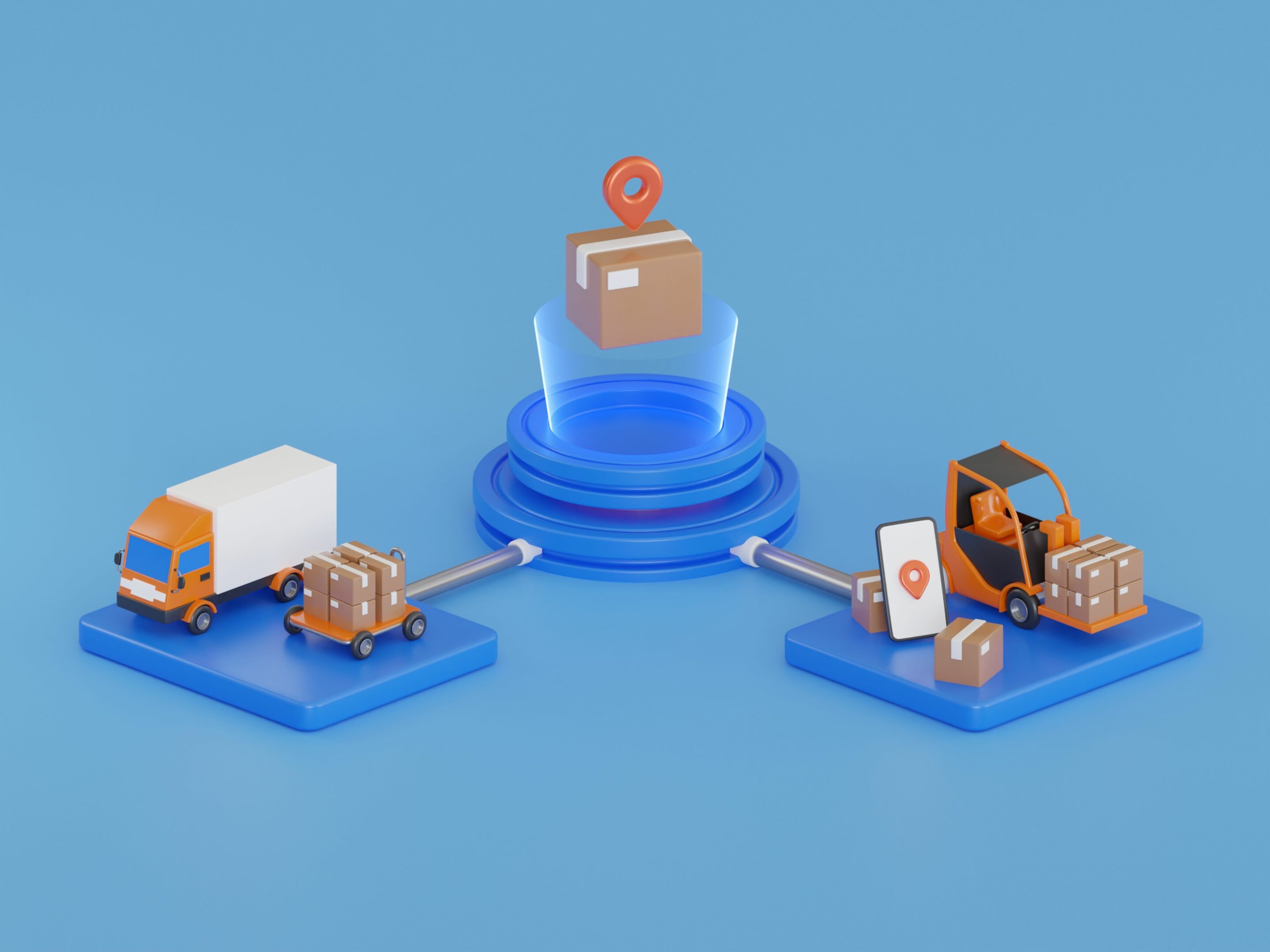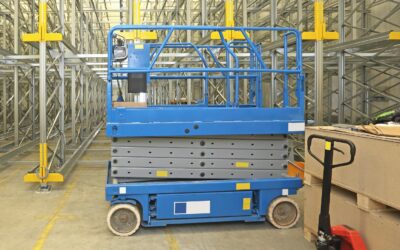Do you want to increase efficiency, meet the needs of a constantly changing market and control your logistics costs? Then you need a 4PL partner. Logistics outsourcing is a solution that offers a high degree of operational flexibility. It enables companies to optimize their supply chain, improve performance and enhance their brand image. There are several levels at which you can delegate your warehousing and transport operations. Before going into detail about the advantages of 4PL, here are 4 types of logistics provider.
1PL, 2PL, 3PL, 4PL and 5PL: understanding the different ways to outsource logistics
PL stands for "Party Logistics". In French, the term is translated as "fournisseur logistique". The number that accompanies the acronym represents the degree of logistics outsourcing. The higher the number, the higher the level of service.

1PL - First Party Logistics
A "1PL" company manages all its own logistics to deliver its products or merchandise to its customers. An example would be a market gardener who produces, stores and then delivers his vegetables himself to his supermarket customers.
2PL - Second Party Logistics
The same market gardener could call on a 2PL service provider. The latter has its own logistics and human resources (fleet of vehicles, warehouses, drivers, etc.). Its role is to store and/or transport the vegetables from the grower to his customers.
3PL - Third Party Logistics
The 3PL provider also provides storage and transport services. They offer complementary services such as order preparation, reverse logistics (return flow) or cross-docking. Here, customers outsource part of their logistics, but retain control of overall order management, invoicing and planning.
In our example, the market gardener can call on a 3PL logistics provider to consolidate one package per order from several different pallets of vegetables. The service provider will then pack, store and deliver the goods.
4PL - Fourth Party Logistics
The 4PL model involves outsourcing the entire logistics process. The service provider is responsible for planning, managing inventories and collection and delivery rounds, coordinating teams, etc. It offers consulting services and provides storage and transport services, which it sometimes subcontracts to 3PL providers.
For our market gardener, a 4PL supplier can manage and implement his entire supply chain. For example, it can manage production and supply stocks according to demand. The aim here is to limit losses.
5PL - Fifth Party Logistics
The 5PL provider goes even further than the 4PL model. To optimize the entire supply chain and maximize productivity, it integrates innovative logistics solutions. These are based on advanced technologies such as artificial intelligence, robotics and automation. They take into account not only the market gardener's own production, but also the systems and processes of his suppliers, the stock levels of his direct and indirect customers, and market fluctuations.
The mission of a 4PL supplier: 3 essential roles
The role of the 4PL provider can be divided into 3 main functions.
1. A strategic function
Based on an analysis of market, product, service and customer requirements, the 4PL supplier draws up a logistics roadmap designed to meet the company's objectives. These may include improving quality, reducing transport costs or speeding up production.
2. An operational function
The 4PL service provider organizes day-to-day logistics activities, using his own resources or those of subcontractors. They plan the flow of products through the supply chain, manage and monitor stocks, and provide customer service.
3. A support function
Monitoring and improving logistics efficiency are also part of the 4PL service provider's mission. As an advisor, he supports the client company in achieving its objectives by proposing advanced solutions to optimize its processes.
The advantages of 4PL: 6 reasons to adopt this logistics model
More than just a service provider, a 4PL is a strategic partner for your company. Among the plethora of advantages it can bring you, here are 6.
1. Gain full visibility of your supply chain
To establish a relevant supply chain strategy, a 4PL service provider needs to study your logistics process in its entirety, the performance of your storage and transport operations, and inventory levels at each stage. This gives you greater visibility and perspective on the way you operate. As a result, you can make better-informed decisions and optimize your results.
2. Minimize logistical risks
4PL service providers are specialists in their field. They know how to prevent risks, anticipate unfavorable scenarios and react quickly in the event of an anomaly or accident. They also avoid mistakes and prevent poor strategic choices. They ensure supply chain continuity, even at the most critical times.
3. Optimize supply chain efficiency
If you benefit from the expertise of a 4PL, you can only boost the optimization of your supply chain. Thanks to advanced logistical resources and experienced teams, the service provider can guarantee increased operational efficiency on several levels: minimizing losses, speeding up deliveries, boosting productivity, reducing disputes, and so on.
4. Save time
Logistics can be a time-consuming job when you don't know the business or don't have the resources. All it takes is one grain of sand for the machine to get stuck. If, for example, one of your pallets gets lost during delivery, you can spend hours on the phone trying to trace it... Delegating your logistics operations allows you to concentrate on your core business and its development.
5. Be flexible and respond better to customer demand
Supported by a 4PL partner, a company can adapt its logistics processes to market trends. It can adjust its production to meet customer demand. It can also work on a just-in-time basis to avoid losses, and respond to urgent orders at any time.
6. Reduce production and logistics costs
Outsourcing logistics is not a burden, it's an investment. By optimizing the supply chain, a company can save time and money. This not only reduces costly errors, but also unnecessary actions and purchases, irrelevant recruitment, etc.
What types of company are involved in 4PL/5PL logistics?
The 4PL model is designed for companies whose core business is not logistics, but whose business is heavily impacted by logistics. It is also useful for complex supply chains requiring strict planning and organization. The 4PL service provider operates in sectors where speed and responsiveness are critical.
Medical device companies are particularly in need of this type of logistician. In some cases, for example, surgeons only place an order for a prosthesis when the patient is anaesthetized. They may request several sizes of the same medical device, if they are unsure of the right dimensions before surgery. These situations leave no room for error. The 4PL mode makes it possible to meet these all-important requirements.
The 4PL provider can also be useful to maintenance and repair companies in the field. It provides supply chain control, inventory management and transportation. Instead of wasting considerable time searching for and storing parts, technicians can concentrate on the job in hand. They know that the material they need is available, and that it will be delivered on time.
Retail and e-commerce are other sectors where efficient logistics have a major impact. The 4PL enables you to control inventories to avoid shortages and overproduction, make deliveries in less than 24 hours, and pool transport rounds to reduce logistics costs.
The 4 & 5PL model: a response to a complex market
In recent years, we have witnessed a change in consumer habits, as they become increasingly demanding in terms of quality, price and service efficiency. Companies in all sectors, whatever their position in the supply chain, have an interest in improving their performance and controlling their cost structures.
The 4PL trend is growing. This model enables companies to achieve their objectives with the support of experts. In this way, they can optimize their processes and meet market requirements.
Sources :
- www.mecalux.fr
- www.blog.xplog.fr
- www.docshipper.fr





0 comments